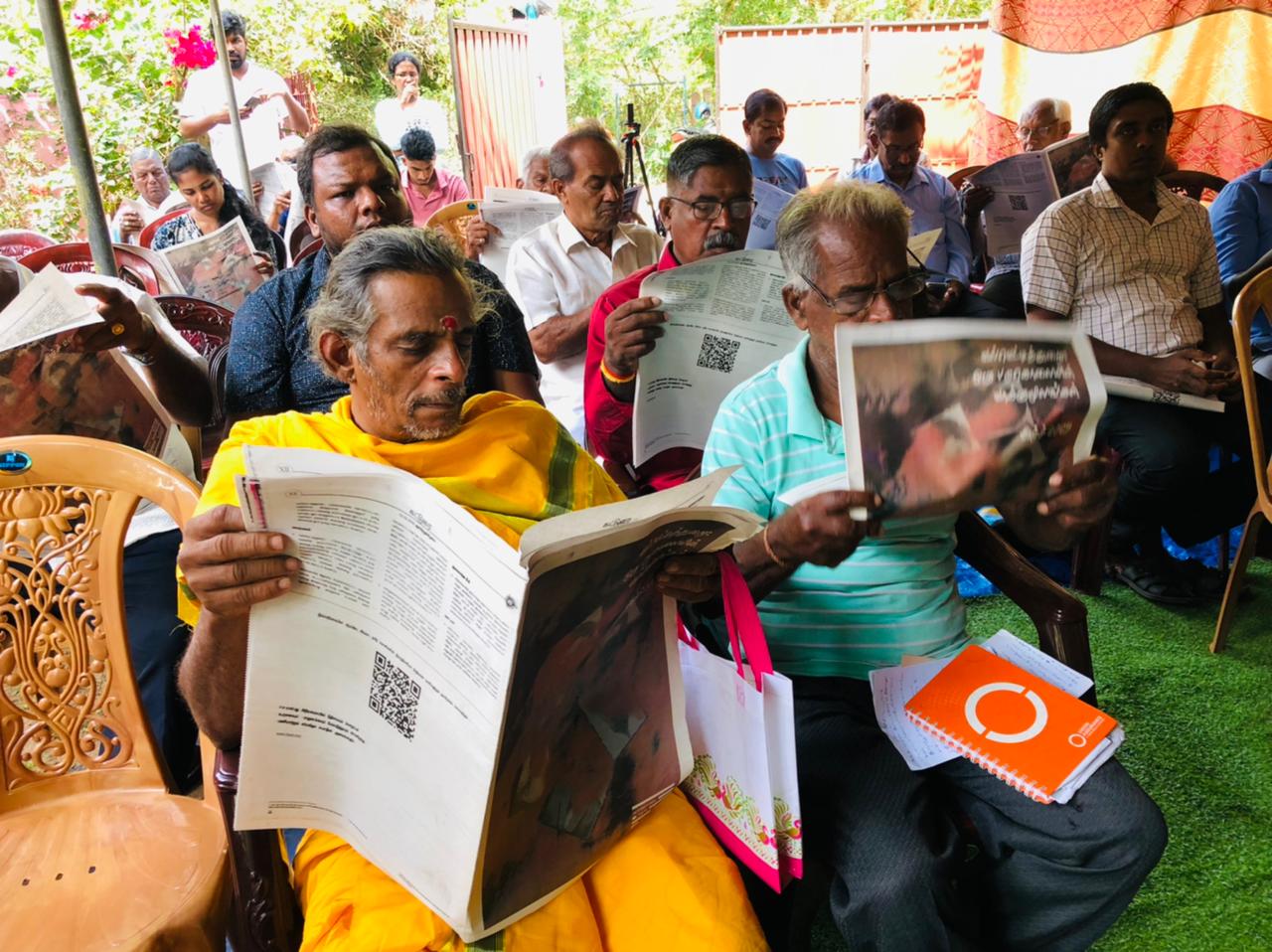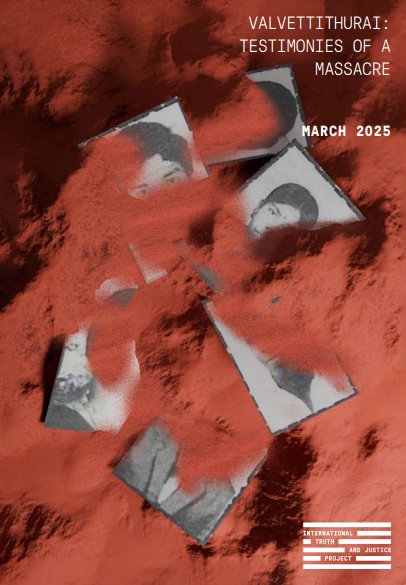
A new report by the International Truth and Justice Project (ITJP) has examined the Valvettithurai (VVT) massacre of 1989, one of the worst atrocities committed by the Indian Peacekeeping Force (IPKF) against Eelam Tamils.
The report, titled Valvettithurai: Testimonies of a Massacre, presents damning evidence of mass killings, torture, and destruction inflicted upon Tamil civilians, calling for criminal accountability, reparations, and exhumations of mass graves.
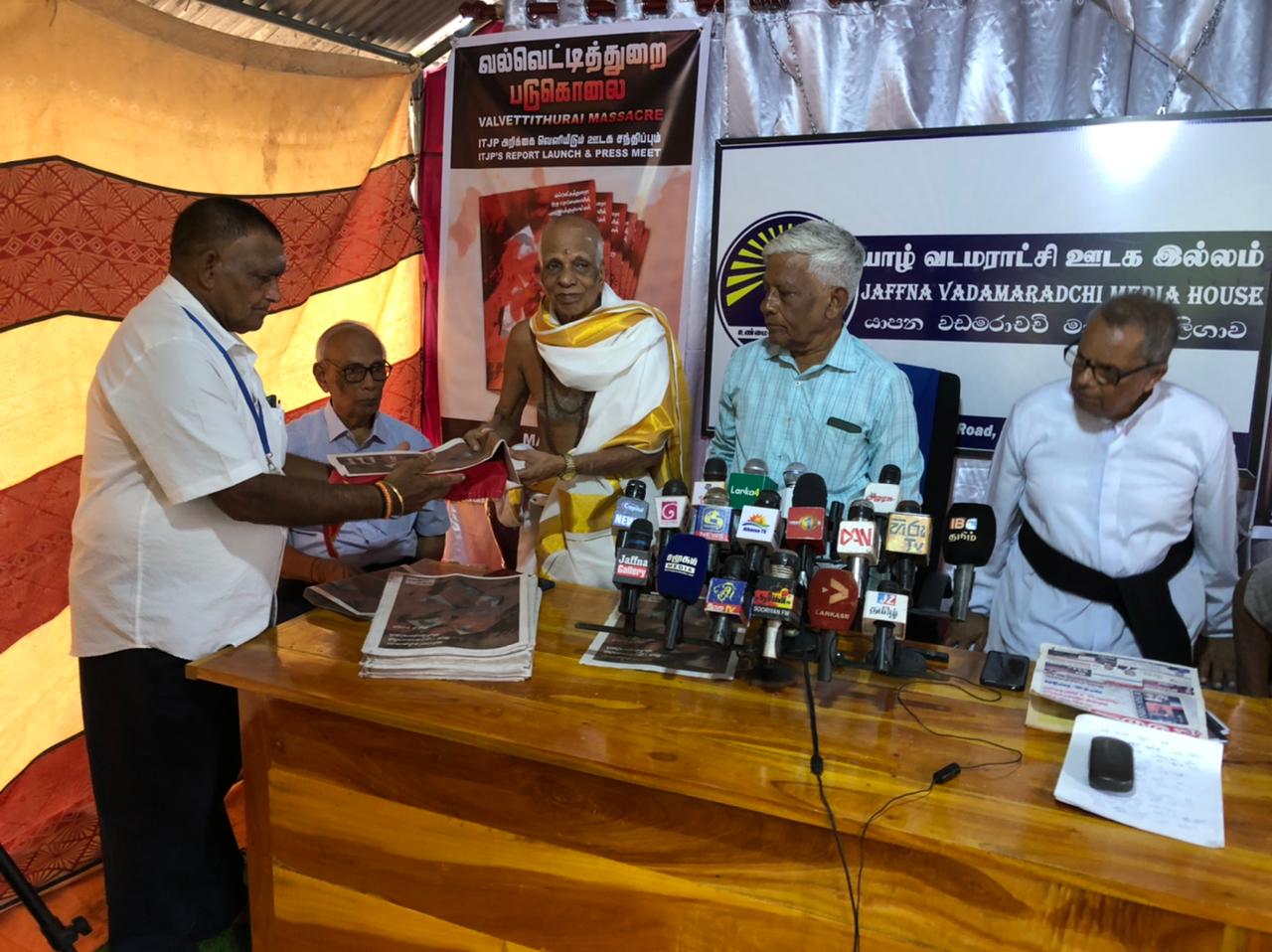
The report was released on Sunday, at the Vadamarachchi Media Center in Jaffna. The event commenced with a moment of silence, the lighting of a common flame, and a floral tribute. Following this, eulogies were delivered by the chief priest of the Valvai Muthumariamman Temple, S. Thandayuthapani Desikar, and Father Devarajan Adikal, the senior clergyman of the Jaffna Deanery, former parish priest of Mayiliddy, and director of the London Catholic Mission.
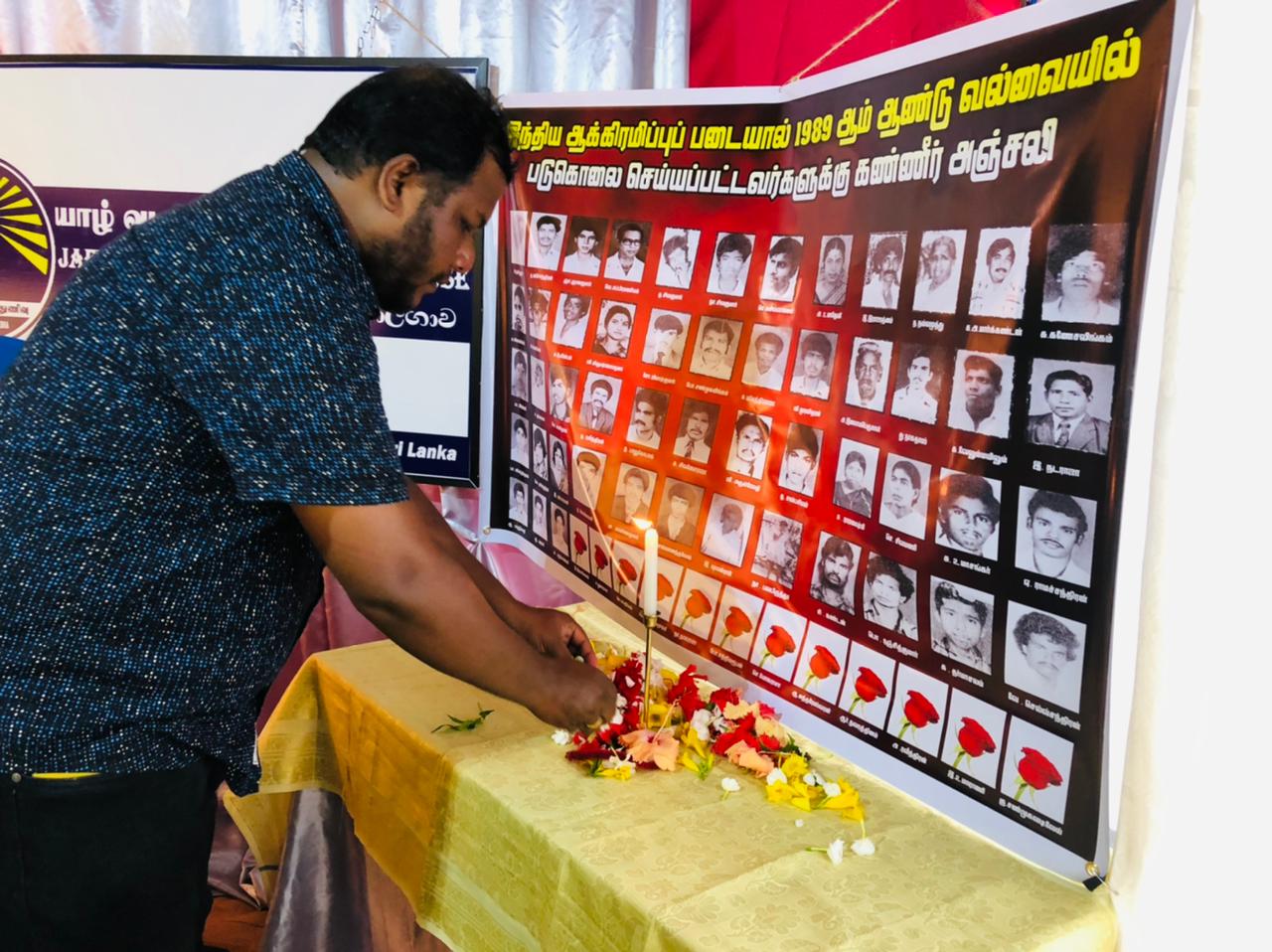
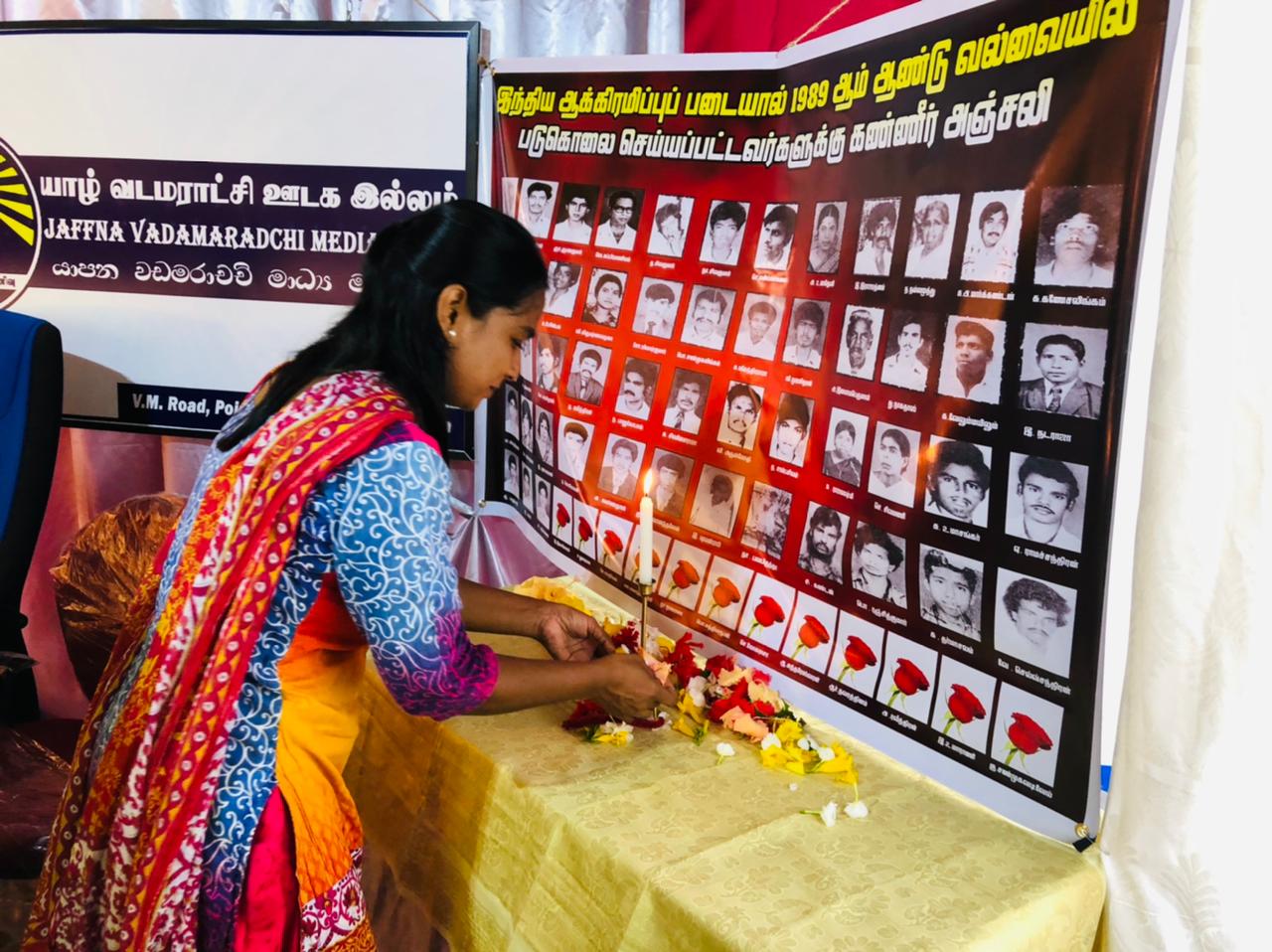
Over three days in August 1989, IPKF soldiers killed more than 60 Tamil civilians in Valvettithurai, including five children under the age of 16 and an infant. Survivors recounted harrowing experiences—watching their loved ones executed in front of them, being forced to play dead in pools of blood, and witnessing widespread destruction of homes, businesses, and food supplies.
The report details how Tamil civilians suffered indiscriminate violence, with their town reduced to rubble in what appeared to be an act of collective punishment.
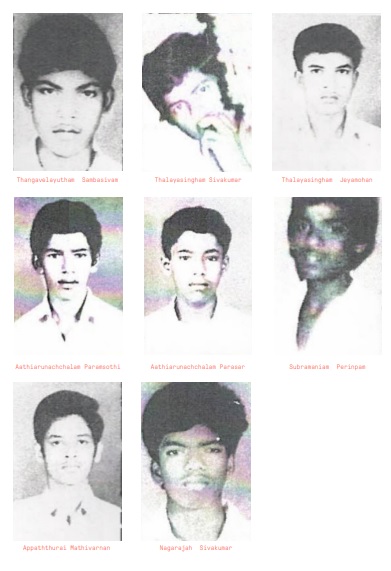
Despite initial denials by Indian authorities and attempts to dismiss the massacre as collateral damage in crossfire, local documentation efforts by Tamil activists preserved critical evidence. School principal Nadarajah Anantharaj painstakingly collected around 200 affidavits from survivors, ensuring that the truth of what transpired was recorded for future generations.
The ITJP report highlights that despite the passage of 35 years, there has been no justice for the victims of the Valvettithurai massacre. Successive governments in Sri Lanka failed to hold the IPKF accountable, and Indian authorities have not pursued criminal prosecutions against those responsible.
“The survivors of this massacre have never had access to an effective remedy,” the report states, adding that families have faced a systematic cover-up, diplomatic obstructions, and even assassinations of those who sought accountability.
In light of the ongoing failure to prosecute those responsible, the ITJP recommends that Sri Lanka should impose targeted sanctions and visa bans on former IPKF officers implicated in the massacre. The report also urges the application of the Leahy Law in the United States, which would prohibit military assistance to any unit found responsible for gross human rights violations.
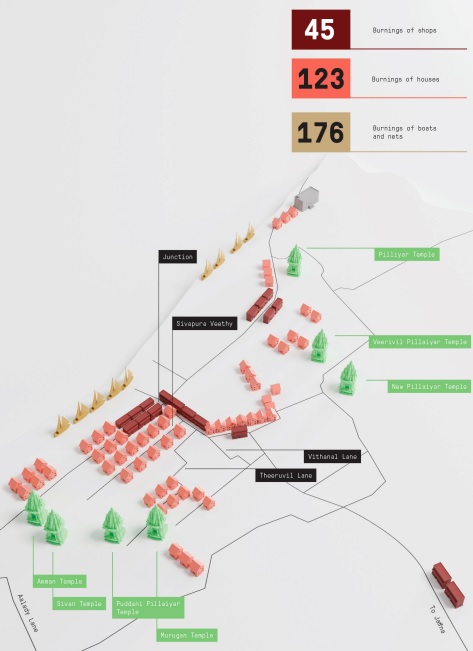
The ITJP is also calling for the immediate exhumation of a suspected mass grave located at Uduppiddy Girls College, where ten young men and boys from VVT are believed to have been buried after being killed by the IPKF. The report stresses the urgent need for Sri Lankan authorities to conduct forensic investigations and return the remains to the victims’ families.
Additionally, the report urges both the Indian and Sri Lankan governments to ensure reparations for the victims, including financial compensation, psychosocial support, and official apologies. A key demand is the construction of a permanent monument in Valvettithurai to honour those who lost their lives, ensuring that their memory is not erased.
The Valvettithurai massacre was not an isolated incident. The report places it within the wider context of IPKF atrocities across the North-East, including the Jaffna Hospital massacre of 1987, where over 70 civilians, including doctors, nurses, and patients, were killed. Amnesty International had previously documented numerous cases of enforced disappearances, torture, and extrajudicial executions carried out by the IPKF during its deployment.
The ITJP report argues that these acts may amount to crimes against humanity under international criminal law, given their systematic nature and the deliberate targeting of Tamil civilians.
The report also notes that Sri Lanka’s new government, led by current president Anura Kumara Dissanayake, has yet to indicate whether it will pursue accountability for the crimes committed during the IPKF period. Despite ordering reinvestigations into select high-profile cases, Dissanayake’s administration has reiterated its refusal to cooperate with the UN’s ongoing investigations into Sri Lanka’s war crimes.
While previous governments have consistently shielded both Sri Lankan and foreign forces from prosecution, the report stresses that any future Truth and Reconciliation Commission in Sri Lanka must include an investigation into the IPKF’s human rights violations.
Read the full text of the report here.
